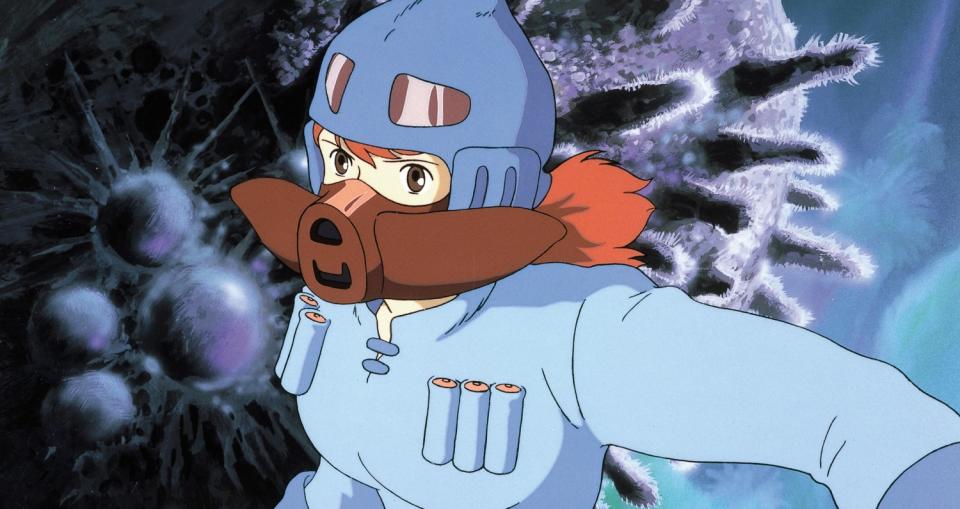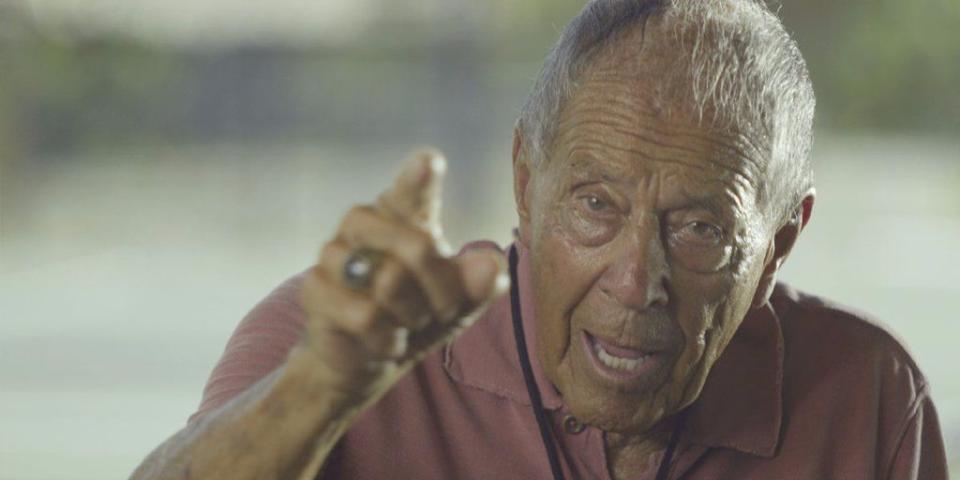Ivy Pochoda quarantines with Cormac McCarthy, Dr. Seuss and gymnastics videos

The Times asked authors to track what they do in isolation. This week, Ivy Pochoda, author of "These Women" and other novels, teaches (reads) her daughter poetry, binges on Laura Ingalls Wilder and Studio Ghibli, and tackles some grownup books as well.
Tuesday, May 19
This week I was supposed to be heading on a book tour, but I’m home with my husband and 5-year-old, which I can’t complain about, at least not for very long. Loretta’s class is beginning a unit on how to become “avid poetry readers.” Since she can’t actually read, this will involve listening to poetry read by her mother. The school has been doing wonders with their at-home lessons, but the poems they’ve provided don’t grab Loretta or me. The rhymes and rhythms of Dr. Seuss are so ingrained in Loretta that giving them a label has just muddled the matter. We find some of her favorite poems — Lear’s “The Owl and the Pussycat” and Milne’s “Four Friends” — which we recite together. She bellows “runcible spoon” at the appropriate moment. Lesson over.
While Loretta is occupied with her online gymnastics class, I dip back into my advanced copy of Elizabeth Hand’s forthcoming “The Book of Lamps and Banners,” the latest in her Cass Neary series, which is sensational. It has so many things I love in a novel — ancient, magical books; thoroughly damaged characters; a fantastic sense of atmosphere and place; and crime. It conjures that summer reading feeling I craved as a kid when I’d switch from schoolbooks to the more illicit pleasures of pure, propulsive story. I hop onto bookshop.org and order one of the Cass Neary books I missed, then throw in some Sara Gran and preorder the new Lauren Beukes. While I’m there I add a few books for Loretta (or actually for me) by Adam Gidwitz — "Through a Glass Grimmly” and “A Grimm Conclusion.” Loretta has already deemed the first in this series, “A Tale Dark and Grimm,” too scary. We’ve agreed that we will only read it “at daytime.” But I need to know how that book ends and how the series evolves, so I hit purchase.
After gymnastics, I have a no-contact errand to run so I pop Loretta in the car and surprise her with the audiobook of the just-released fifth book in, you guessed it, Adam Gidwitz’s Unicorn Rescue Society series, “The Madre de Aguas of Cuba.” There’s no traffic in Los Angeles right now, so the roundtrip to Pasadena takes less than an hour, which is too bad since the book is excellent. We linger in the car to finish a chapter.

After dinner Loretta watches a few episodes of Studio Ghibli’s “Ronja, the Robber’s Daughter,” based on Astrid Lindgren’s novel. I’ve lost track of how many times we’ve been through this show. Loretta clearly figured out much earlier than I did that routines now demand familiar pleasures, which has given her an easier time with the daily nothing-new. I look over her shoulder hoping she’s onto the scary episode with the voices in the mist. But instead it’s the one about taming wild horses. (At least it’s not the one where Ronja’s dad hogties her best friend.)
Loretta and I have been been working our way through the Little House books since January. This is our “at nighttime” reading. Over the weekend we finished “Farmer Boy” (phew) and now we are back to reading about Laura. Tonight we begin “The Long Winter.” I’m sad to see that Laura is now 14. Like someone else I know, she’s growing up too fast.
When Loretta is asleep, I open another slightly ill-advised bottle of wine and turn on “Lost Girls” on Netflix, based on Robert Kolker’s seminal victim-forward true crime book. I remember how influential it was on my latest novel and remind myself to tell him so. In bed I finish rereading the final chapter of Don Carpenter’s “Hard Rain Falling.” It is, as always, heartbreaking. And I’m glad to have actually finished reading something even if I’ve read it twice before.
Wednesday, May 20
I wake up and pay fealty to Instagram. Soon I’m down a rabbit hole of classic gymnastics videos. I extricate myself from a Nastia Liukin beam routine and see that my terrific friend Gary Frenkel, a bigshot producer of digital content at Warner Media who designed my website, has posted about a website he built for TNT’s “Snowpiercer.” I click over to Wilford Industries, and am sucked into the visuals. There are 1,001 train cars to absorb; I’m going to be here a while.
After breakfast, I glance through Loretta’s at-home lessons for the day. Today there is a workshop on reading poetry “for meaning.” Meaning can wait. Instead, I decide to revisit rhythm and rhyme. Sometimes it sounds to me as if Loretta speaks English as a foreign language; her speech is peppered with odd patterns, delightful malapropisms (“my backyarden”) and lilting cadence. So I grab “Jabberwocky” and “Fox in Socks,” and hint that there is meaning in the madness but the madness is more interesting.
In the afternoon, I have time for a long walk during which I listen to Robert Kolker’s “Hidden Valley Road,” which I also own in hardcover. It’s turning into a bit of a Kolker-fest over here. I have to take a break, however, because the story can be a bit overwhelming.

Loretta wants to watch a movie after dinner and I’m not above it. Plus, it’s time for a drink. She carries out a long debate about whether to watch “Nausicaa, Valley of the Wind” or “Princess Mononoke,” both Studio Ghibli movies she’s seen numerous times. I refrain from telling her that they are both a hell of a lot scarier than “A Tale Dark and Grimm” (and can we please find out how that ends now). We settle on “Nausicaa” and tuck in for Hayao Miyazaki’s postapocalyptic, environmentalist anti-war film. At bedtime, we make a complete 180 from the steampunk future to Laura Ingalls, who is settling in for what promises to be a long, severe winter. I wonder if Loretta will see the parallels to today and realize how good she has it.

When she’s asleep, I take a long look at the books on my nightstand but can’t shake how badly I’m missing watching sports. On Sunday I finished “The Last Dance,” which I’m not in the unique position of loving. (Watching this doc dovetailed with turning in the final draft of my next and probably last middle grade collaboration with Kobe Bryant, so the sense of loss when it was over was profound.) My husband and I decide on “Love Means Zero,” a documentary about infamous tennis coach Nick Bollettieri, who talks like Brooklyn mobster and has a hide like a pair of well-worn ostrich-skin boots. The film is fantastic both emotionally and aesthetically.
I’m still on a tennis kick when I get into bed, so I open a digital advance copy of Sameer Pandya’s debut, “Members Only,” set in an exclusive tennis club. I loathe reading digitally, but Pandaya’s book is so good that the harsh glare of my iPad ceases to bother me. After a chapter, I think I’ve finally found a way to slough off the film of self-loathing that remains from the time I spent at similar country clubs during my days as a competitive athlete.

Thursday, May 21
You know the drill by now — poetry workshop (writing not reading this time), Studio Ghibli, and the Laura Ingalls Wilder. The repetition is sublime and comforting. And I’ve discovered that small disruptions to the pattern can really throw me off. A virtual book event, a Zoom cocktail, which are highlights of my week, also disturb my equilibrium. After one of these this evening, I wander around the house trying to figure out how to slip back into my routine.

After struggling to immerse myself in “The Long Winter” (I don’t think Loretta noticed) I scan my nightstand and discover Cormac McCarthy’s “Child of God.” I kicked off quarantine by rereading “Blood Meridian” because something in its apocalyptic vision seemed to reflect the moment. I was amused to discover how much comfort I derived from this odyssey of violence. No matter what’s going on outside it’s got nothing on what the Glanton Gang wrought. I suddenly realize I never finished rereading “Child of God” and should probably start from the beginning, which seems daunting despite the book’s slim size.
But right now there are 1,001 train cars to explore on the “Snowpiercer” website and more classic gymnastics to watch. There’s a glass of wine to finish and a ceiling fan to contemplate. There are lists of books that need to be made and ideas to be jotted down. And McCarthy will wait until tomorrow after the usual. And the usual will continue to keep me rolling.

